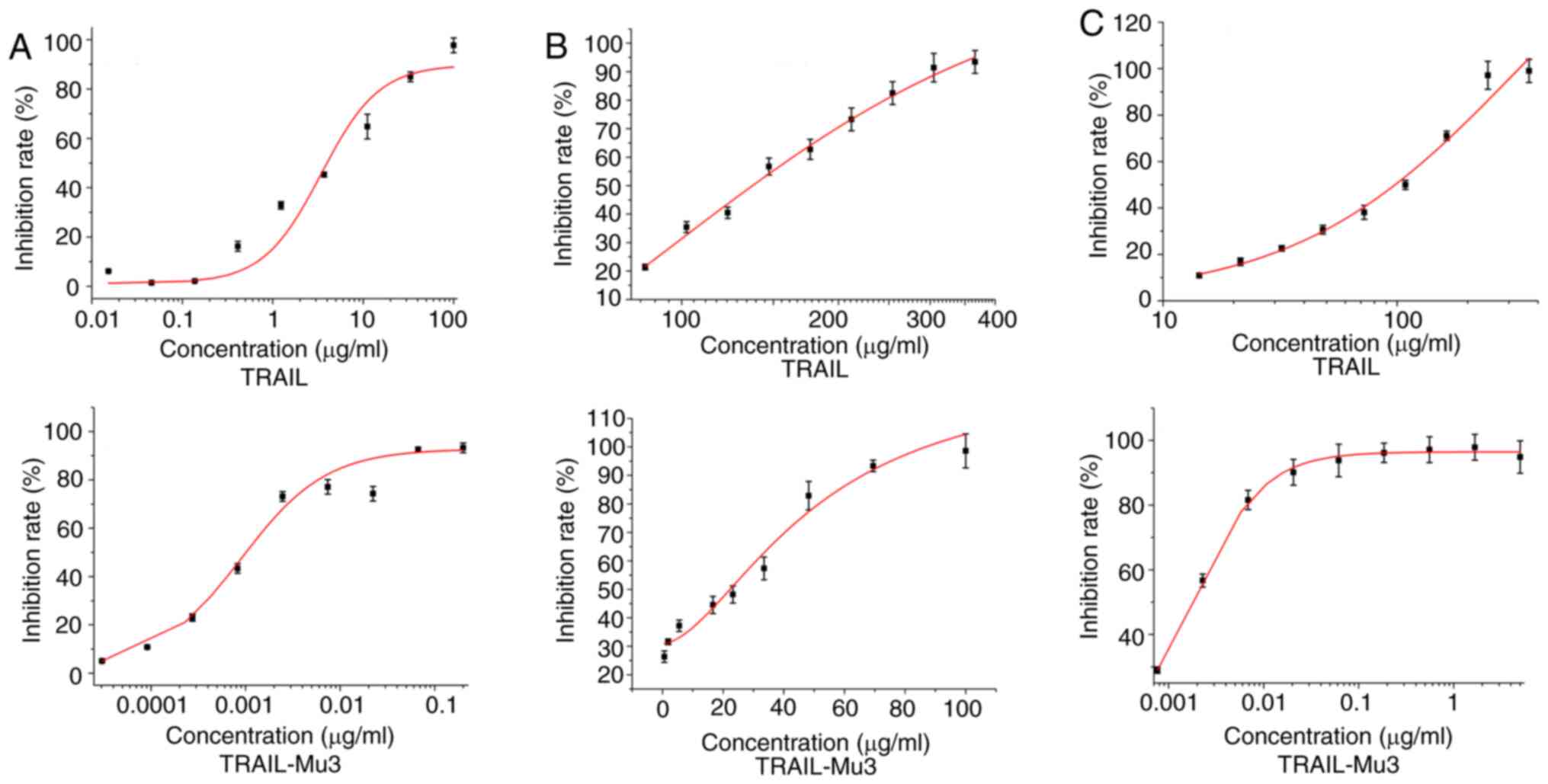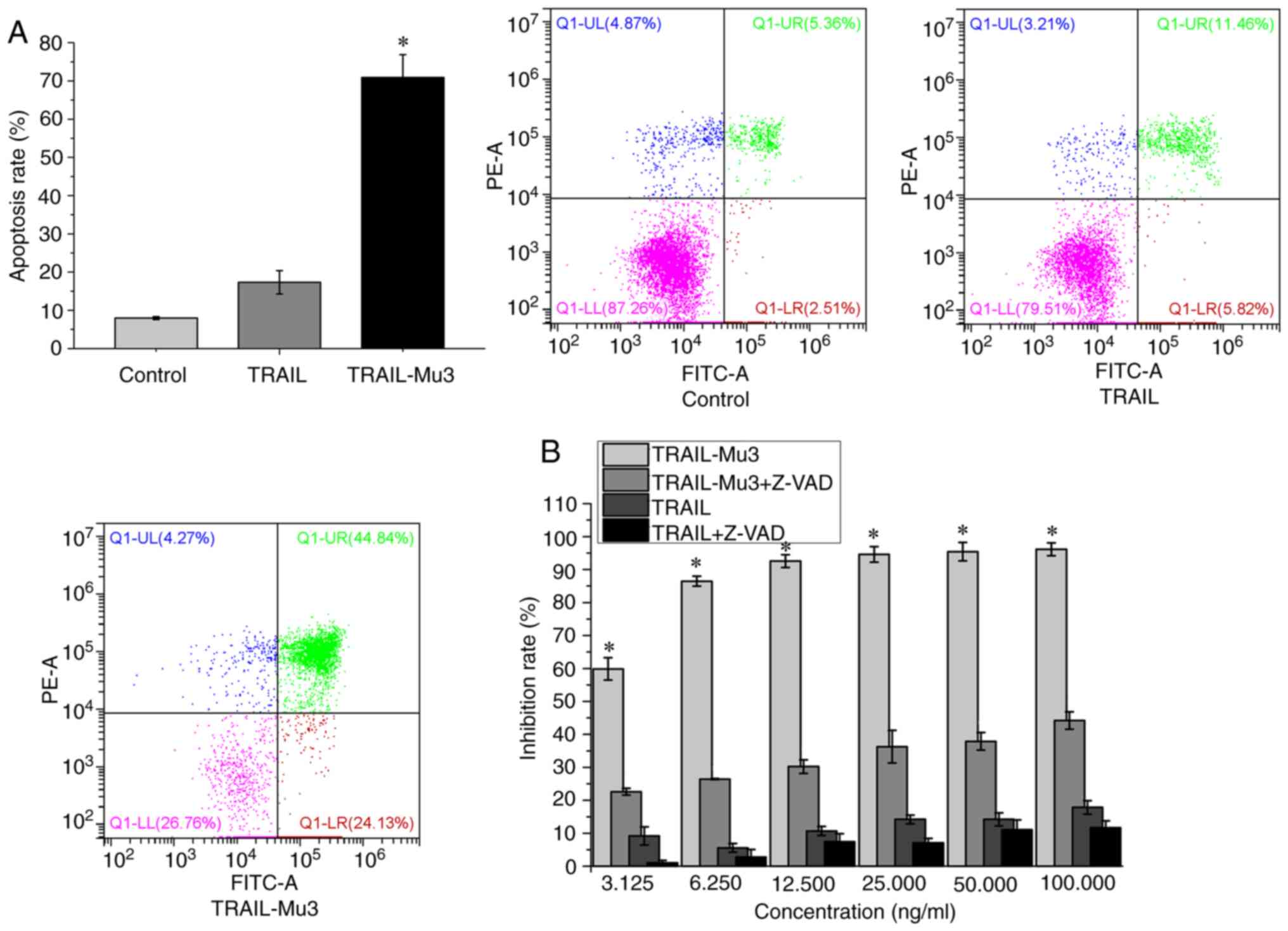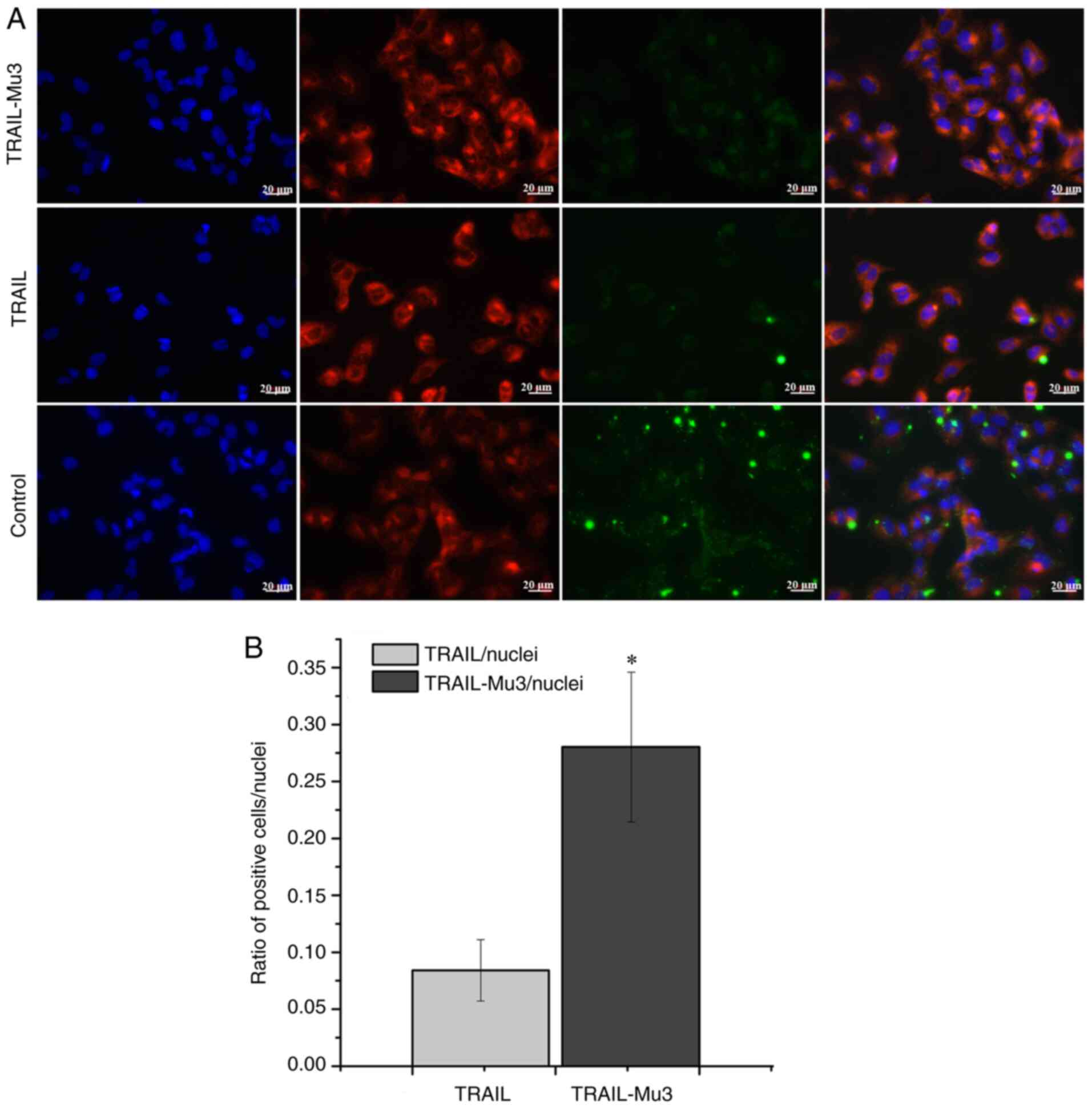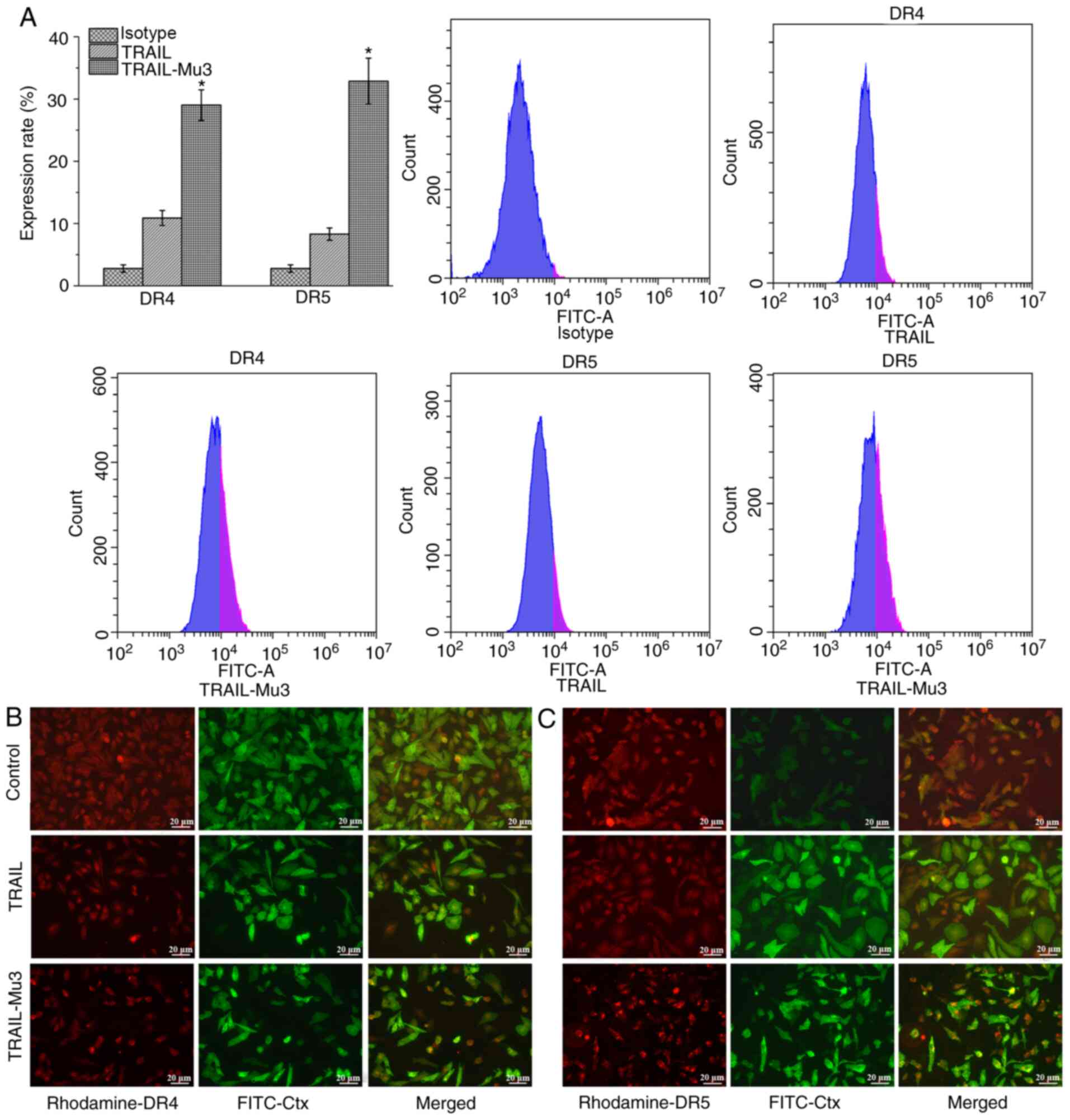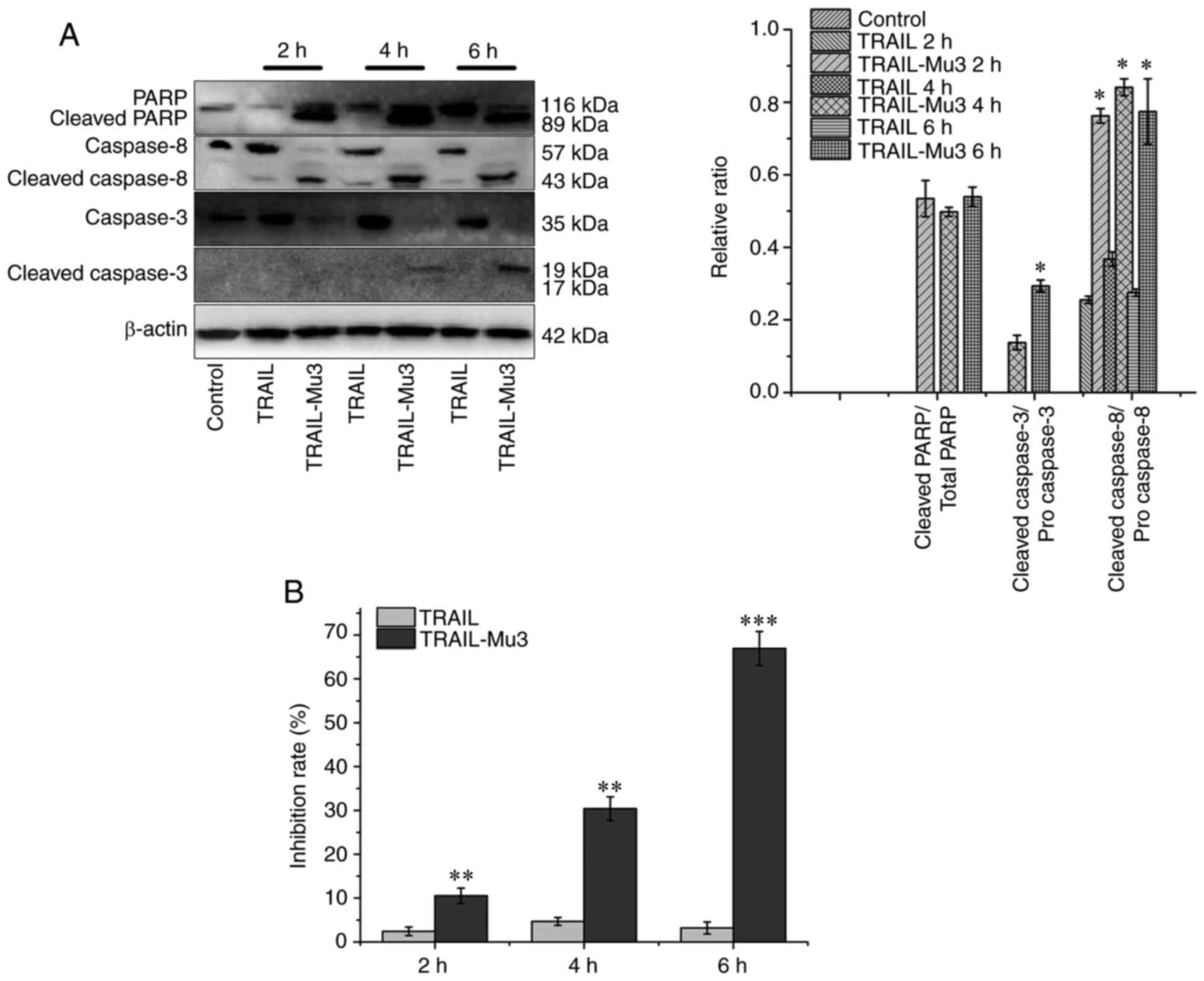|
1
|
Bray F, Ferlay J, Soerjomataram I, Siegel
RL, Torre LA and Jemal A: Global cancer statistics 2018: GLOBOCAN
estimates of incidence and mortality worldwide for 36 cancers in
185 countries. CA Cancer J Clin. 68:394–424. 2018. View Article : Google Scholar : PubMed/NCBI
|
|
2
|
Vincent A, Herman J, Schulick R, Hruban RH
and Goggins M: Pancreatic cancer. Lancet. 378:607–620. 2011.
View Article : Google Scholar : PubMed/NCBI
|
|
3
|
Wolpin BM: Pancreatic cancer. Hematol
Oncol Clin North Am. 29:xiii–xiv. 2015. View Article : Google Scholar : PubMed/NCBI
|
|
4
|
Chu LC, Goggins MG and Fishman EK:
Diagnosis and detection of pancreatic cancer. Cancer J. 23:333–342.
2017. View Article : Google Scholar : PubMed/NCBI
|
|
5
|
Chatzizacharias NA, Tsai S, Griffin M,
Tolat P, Ritch P, George B, Barnes C, Aldakkak M, Khan AH, Hall W,
et al: Locally advanced pancreas cancer: Staging and goals of
therapy. Surgery. 163:1053–1062. 2018. View Article : Google Scholar : PubMed/NCBI
|
|
6
|
Draper A: Updates in pancreatic cancer:
Modest gains and hopeful targets. J Oncol Pharm Pract. 25:101–109.
2019. View Article : Google Scholar : PubMed/NCBI
|
|
7
|
Sadeghi S, Davoodvandi A, Pourhanifeh MH,
Sharifi N, ArefNezhad R, Sahebnasagh R, Moghadam SA, Sahebkar A and
Mirzaei H: Anti-cancer effects of cinnamon: Insights into its
apoptosis effects. Eur J Med Chem. 178:131–140. 2019. View Article : Google Scholar : PubMed/NCBI
|
|
8
|
Pistritto G, Trisciuoglio D, Ceci C,
Garufi A and DOrazi G: Apoptosis as anticancer mechanism: Function
and dysfunction of its modulators and targeted therapeutic
strategies. Aging (Albany NY). 8:603–619. 2016. View Article : Google Scholar : PubMed/NCBI
|
|
9
|
von Karstedt S, Montinaro A and Walczak H:
Exploring the TRAILs less travelled: TRAIL in cancer biology and
therapy. Nat Rev Cancer. 17:352–366. 2017. View Article : Google Scholar : PubMed/NCBI
|
|
10
|
Zhong HH, Wang HY, Li J and Huang YZ:
TRAIL-based gene delivery and therapeutic strategies. Acta
Pharmacol Sin. 40:1373–1385. 2019. View Article : Google Scholar : PubMed/NCBI
|
|
11
|
Yuan X, Gajan A, Chu Q, Xiong H, Wu K and
Wu GS: Developing TRAIL/TRAIL death receptor-based cancer
therapies. Cancer Metastasis Rev. 37:733–748. 2018. View Article : Google Scholar : PubMed/NCBI
|
|
12
|
Shahwar D, Iqbal MJ, Nisa MU, Todorovska
M, Attar R, Sabitaliyevich UY, Farooqi AA, Ahmad A and Xu B:
Natural product mediated regulation of death receptors and
intracellular machinery: Fresh from the pipeline about
TRAIL-mediated signaling and natural TRAIL sensitizers. Int J Mol
Sci. 20:202019. View Article : Google Scholar
|
|
13
|
Ouyang W, Yang C, Liu Y, Xiong J, Zhang J,
Zhong Y, Zhang G, Zhou F, Zhou Y and Xie C: Redistribution of DR4
and DR5 in lipid rafts accounts for the sensitivity to TRAIL in
NSCLC cells. Int J Oncol. 39:1577–1586. 2011.PubMed/NCBI
|
|
14
|
Aroui S, Brahim S, Hamelin J, De Waard M,
Breard J and Kenani A: Conjugation of doxorubicin to cell
penetrating peptides sensitizes human breast MDA-MB 231 cancer
cells to endogenous TRAIL-induced apoptosis. Apoptosis.
14:1352–1365. 2009. View Article : Google Scholar : PubMed/NCBI
|
|
15
|
Papo N, Seger D, Makovitzki A, Kalchenko
V, Eshhar Z, Degani H and Shai Y: Inhibition of tumor growth and
elimination of multiple metastases in human prostate and breast
xenografts by systemic inoculation of a host defense-like lytic
peptide. Cancer Res. 66:5371–5378. 2006. View Article : Google Scholar : PubMed/NCBI
|
|
16
|
Kirson ED, Dbalý V, Tovarys F, Vymazal J,
Soustiel JF, Itzhaki A, Mordechovich D, Steinberg-Shapira S,
Gurvich Z, Schneiderman R, et al: Alternating electric fields
arrest cell proliferation in animal tumor models and human brain
tumors. Proc Natl Acad Sci USA. 104:10152–10157. 2007. View Article : Google Scholar : PubMed/NCBI
|
|
17
|
Huang M, Zhu H, Yi C, Yan J, Wei L, Yang
X, Chen S and Huang Y: A novel TRAIL mutant-TRAIL-Mu3 enhances the
antitumor effects by the increased affinity and the up-expression
of DR5 in pancreatic cancer. Cancer Chemother Pharmacol.
82:829–838. 2018. View Article : Google Scholar : PubMed/NCBI
|
|
18
|
Zhu H, Yan J, Xu Q, Wei L, Huang X, Chen S
and Yi C: TRAIL mutant membrane penetrating peptide alike (TMPPA)
TRAIL-Mu3 enhances the antitumor effects of TRAIL in vitro and in
vivo. Mol Med Rep. 16:9607–9612. 2017. View Article : Google Scholar : PubMed/NCBI
|
|
19
|
Neoptolemos JP, Kleeff J, Michl P,
Costello E, Greenhalf W and Palmer DH: Therapeutic developments in
pancreatic cancer: Current and future perspectives. Nat Rev
Gastroenterol Hepatol. 15:333–348. 2018. View Article : Google Scholar : PubMed/NCBI
|
|
20
|
Spano C, Grisendi G, Golinelli G,
Rossignoli F, Prapa M, Bestagno M, Candini O, Petrachi T, Recchia
A, Miselli F, et al: Soluble TRAIL armed human MSC as gene therapy
for pancreatic cancer. Sci Rep. 9:17882019.https://doi.org/10.1038/s41598-018-37433-6 View Article : Google Scholar : PubMed/NCBI
|
|
21
|
de Miguel D, Lemke J, Anel A, Walczak H
and Martinez-Lostao L: Onto better TRAILs for cancer treatment.
Cell Death Differ. 23:733–747. 2016. View Article : Google Scholar : PubMed/NCBI
|
|
22
|
Bellail AC, Qi L, Mulligan P, Chhabra V
and Hao C: TRAIL agonists on clinical trials for cancer therapy:
The promises and the challenges. Rev Recent Clin Trials. 4:34–41.
2009. View Article : Google Scholar : PubMed/NCBI
|
|
23
|
Lemke J, von Karstedt S, Zinngrebe J and
Walczak H: Getting TRAIL back on track for cancer therapy. Cell
Death Differ. 21:1350–1364. 2014. View Article : Google Scholar : PubMed/NCBI
|
|
24
|
Legler K, Hauser C, Egberts JH, Willms A,
Heneweer C, Boretius S, Röcken C, Glüer CC, Becker T, Kluge M, et
al: The novel TRAIL-receptor agonist APG350 exerts superior
therapeutic activity in pancreatic cancer cells. Cell Death Dis.
9:4452018. View Article : Google Scholar : PubMed/NCBI
|
|
25
|
Gallego-Lleyda A, De Miguel D, Anel A and
Martinez-Lostao L: lipid nanoparticles decorated with TNF-related
aptosis-inducing ligand (TRAIL) are more cytotoxic than soluble
recombinant TRAIL in sarcoma. Int J Mol Sci. 19:192018. View Article : Google Scholar
|
|
26
|
Gupta B, Levchenko TS and Torchilin VP:
Intracellular delivery of large molecules and small particles by
cell-penetrating proteins and peptides. Adv Drug Deliv Rev.
57:637–651. 2005. View Article : Google Scholar : PubMed/NCBI
|
|
27
|
Li R, Yang H, Jia D, Nie Q, Cai H, Fan Q,
Wan L, Li L and Lu X: Fusion to an albumin-binding domain with a
high affinity for albumin extends the circulatory half-life and
enhances the in vivo antitumor effects of human TRAIL. J Control
Release. 228:96–106. 2016. View Article : Google Scholar : PubMed/NCBI
|
|
28
|
Hu W, Jia X, Gao Y and Zhang Q:
Chaetospirolactone reverses the apoptotic resistance towards TRAIL
in pancreatic cancer. Biochem Biophys Res Commun. 495:621–628.
2018. View Article : Google Scholar : PubMed/NCBI
|
|
29
|
Yang SZ, Xu F, Zhou T, Zhao X, McDonald JM
and Chen Y: The long non-coding RNA HOTAIR enhances pancreatic
cancer resistance to TNF-related apoptosis-inducing ligand. J Biol
Chem. 292:10390–10397. 2017. View Article : Google Scholar : PubMed/NCBI
|
|
30
|
Xu L, Guo T, Qu X, Hu X, Zhang Y, Che X,
Song H, Gong J, Ma R, Li C, et al: β-elemene increases the
sensitivity of gastric cancer cells to TRAIL by promoting the
formation of DISC in lipid rafts. Cell Biol Int. 42:1377–1385.
2018. View Article : Google Scholar : PubMed/NCBI
|
|
31
|
Beyer K, Baukloh AK, Stoyanova A, Kamphues
C, Sattler A and Kotsch K: Interactions of tumor necrosis
factor-related apoptosis-inducing ligand (TRAIL) with the immune
system: Implications for inflammation and cancer. Cancers (Basel).
11:112019. View Article : Google Scholar
|
|
32
|
Pilié PG, Tang C, Mills GB and Yap TA:
State-of-the-art strategies for targeting the DNA damage response
in cancer. Nat Rev Clin Oncol. 16:81–104. 2019. View Article : Google Scholar : PubMed/NCBI
|
|
33
|
Hsu HY, Lin TY, Hu CH, Shu DTF and Lu MK:
Fucoidan upregulates TLR4/CHOP-mediated caspase-3 and PARP
activation to enhance cisplatin-induced cytotoxicity in human lung
cancer cells. Cancer Lett. 432:112–120. 2018. View Article : Google Scholar : PubMed/NCBI
|
|
34
|
Xu F, Sun Y, Yang SZ, Zhou T, Jhala N,
McDonald J and Chen Y: Cytoplasmic PARP-1 promotes pancreatic
cancer tumorigenesis and resistance. Int J Cancer. 145:474–483.
2019. View Article : Google Scholar : PubMed/NCBI
|















